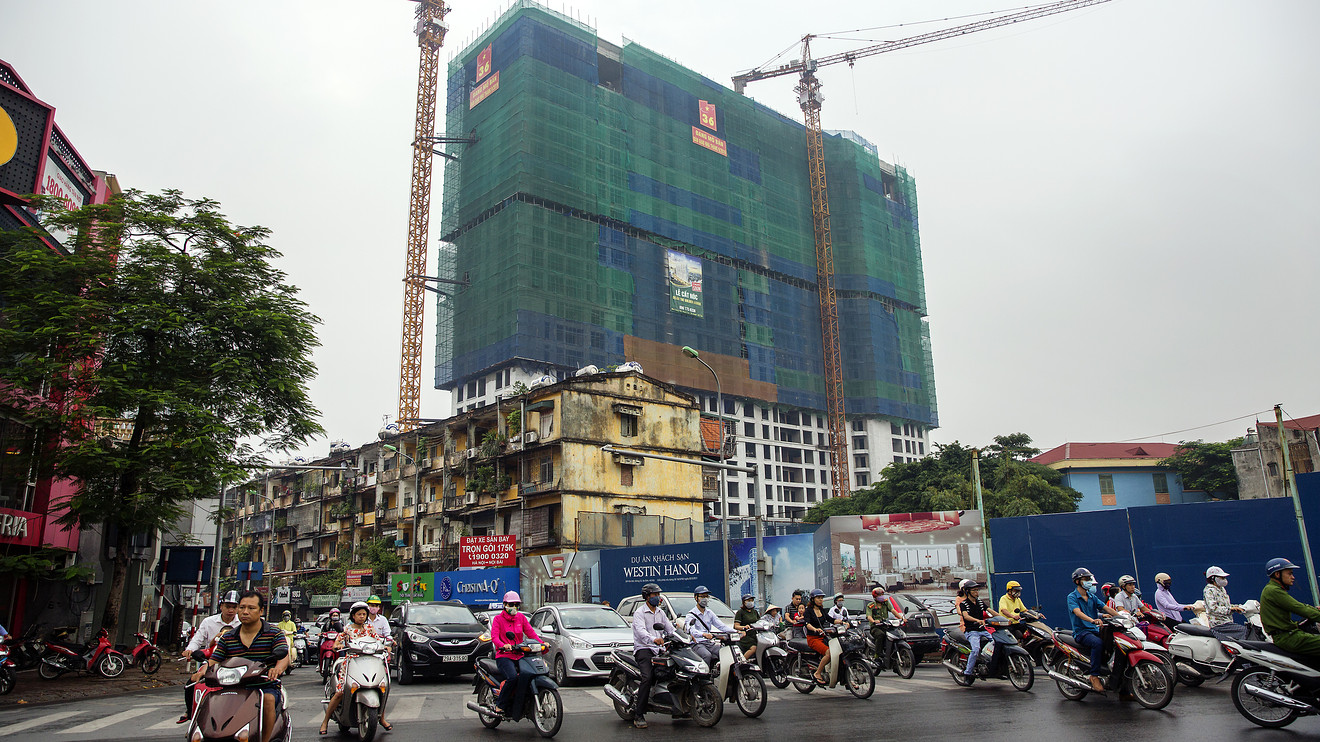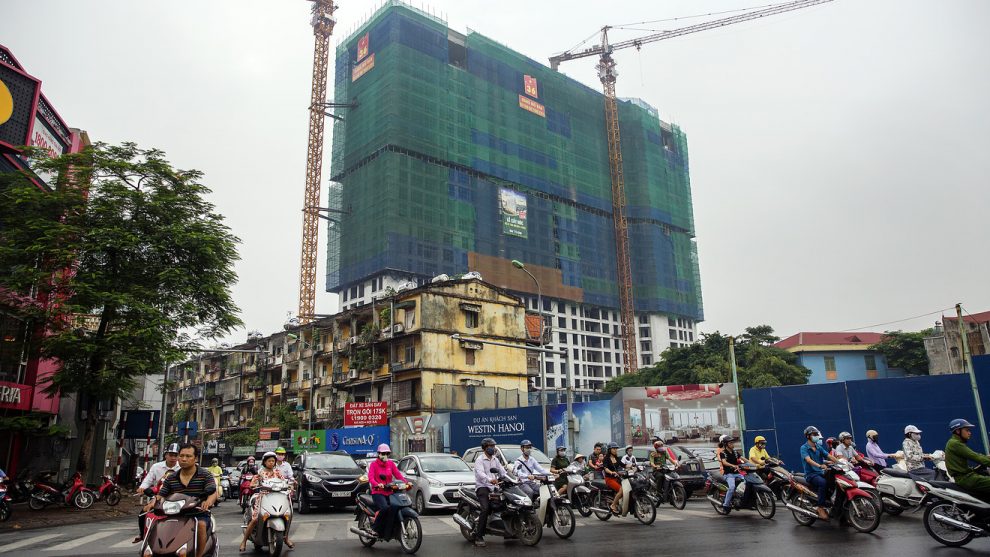
Many analysts, myself included, thought there would be a quick resolution to the U.S.-China trade dispute because this was so clearly the right move for both countries.
Boy, were we wrong!
Despite the trade-war damage to both sides — in the form of slower economic growth and a pullback in all-important business investment in the U.S. — it now looks like the trade dispute will drag out.
One big reason: China likes to play the long game. Policy officials think they might see a more amenable president after the 2020 elections who could be easier to deal with than President Donald Trump.
Companies, too, are concluding this is going to be a drawn-out affair. So they’re moving supply chains out of China. This is bad for China. But there’s a good angle here for investors. The economies of other emerging market countries where companies are going are getting pumped. So their stock markets will probably outperform the S&P 500 SPX, -0.77% and the Dow Jones Industrial Average DJIA, -0.49%.
The two emerging market countries seeing the most new investment due to the trade disputes are Vietnam and Bangladesh, says Oliver Bell, who manages the T. Rowe Price Africa & Middle East Fund TRAMX, -1.09%. Of those two, Bell favors Vietnam, so this should be your focus, too.
How Trump is helping Vietnam
It’s easy to see why Vietnam’s economy and stock market will benefit. While foreign direct investment (FDI) into China has fallen around 34% this year, investment into Vietnam is up sharply, says Bell.
FDI increased 69% in the first five months of the year in dollar terms to reach a four-year high of $16.7 billion, according to Vietnam’s Foreign Investment Agency. The number of new projects was up 39% to 1,400. Most of this is in manufacturing and processing, as opposed to the real estate or retail sectors. “The FDI for Vietnam is huge,” says Bell. “The change is enough to move the needle.”
The spike is mainly due to the U.S.-China trade war, say analysts at Dezan Shira & Associates, which helps business set up shop in Asian countries.
Here are some examples:
• Nike NKE, -2.47% and Adidas ADDYY, -4.49% make a lot of their sneakers in Vietnam. Competitors Asics ASCCY, +18.50% and Brooks Sports, a division of Berkshire Hathaway BRK.B, +0.72%, are joining them by boosting investments in manufacturing in Vietnam.
• Samsung has made smartphones in Vietnam for years. Now, Apple AAPL, -2.15% may join its competitor there. Apple is encouraging suppliers to move some production out of China. Two of its main contract manufacturers, Pegatron and Foxconn, are circling Vietnam. This means Apple may soon start making some phones there. Apple already makes wireless headphones in Vietnam, says Bell.
• Consumer-electronics makers Nintendo NTDOY, -1.75%, Sharp SHCAY, -11.29% and Kyocera KYOCY, +1.75% are moving production to Vietnam from China.
While moves like those — and no doubt more to come — make Vietnam look more interesting as a place to invest, the country already had its own attractions, says Bell.
• Ongoing, very big wage growth in Vietnam supports robust consumer-spending growth. This is a significant economic driver. Wages in Vietnam are increasing at 10%-11% compared with 4% inflation, creating 6% real wage growth, says Bell.
• Yet labor costs are still around a third of what they are in China, says Bell. And Vietnam has a large, young labor force. Plus, the country is investing to improve its infrastructure, and it’s reforming laws to make it easier for companies to operate there. All of this suggests Vietnam will continue to be a magnet for manufacturing investment.
In his fund, Bell is playing the growing consumer-strength trend by owning consumer-facing companies, among others. It’s tough for a lot of U.S. investors to own local listings like these, so it makes sense to consider Bell’s fund for exposure. Bell says he is “very much overweight” Vietnam. He’s got around 22% of his fund in Vietnam, compared with 18% exposure for his benchmark, the MSCI Frontier Markets Index. Vietnam’s economy is growing at 6.5% compared with barely 2% in the U.S.
Bell’s fund isn’t a pure play on Vietnam, by any means. It also gives you exposure to high-growth frontier markets in the Middle East and Africa. Bell is particularly bullish on South Africa. He thinks the economy is bottoming, and the stock market is poised to rebound following years of weakness linked to political turmoil.
Big picture, the economies that Bell’s fund has exposure to are growing at 4%-5% a year, he says. Companies in his fund are seeing earnings growth of 20% a year, on average, but they trade at a price-to-earnings ratio around 12 times forward earnings, near the bottom of the historical 10-18 range. Bell’s fund has outperformed its index in five of the past seven years, according to Morningstar.
For more of a pure play on Vietnam, consider the VanEck Vectors Vietnam exchange traded fund VNM, +0.81%.
What about Bangladesh?
Bell has two concerns here, despite the influx of investment money because of the U.S.-China trade dispute.
First, he thinks the currency is overvalued. A fall in the currency would be bad for people who put money into the country, since they’d get less on the way back out. In terms of exports, Bangladesh is more about textiles, whose profit margins are lower than in electronics or apparel. The infrastructure in Bangladesh is not as good as in Vietnam, which could limit the relative amount of FDI going into that country.
Vietnam risks
To be sure, not all companies are fleeing China. So it’s probably a good idea not to get overly enthusiastic about how any exodus will help places like Vietnam. Tesla TSLA, +0.83%, for example, is setting up a plant on the outskirts of Shanghai.
And then there’s the Trump factor. While imports to the U.S. from China are falling, imports from Vietnam are growing rapidly. “Vietnam, after China, has the biggest trade surplus to the U.S.,” says Bell. “You have to wonder how long Mr. Trump turns a blind eye.”
To make matters worse, at least some of that increase has to be Chinese goods stealthily rerouted through Vietnam to dodge tariffs. The risk here is that Trump opens up a tariff war with Vietnam to retaliate. “The FDI story is the key to perpetuating growth,” says Bell.
If that tails off, it would be a big problem for Vietnam, and anyone who invests there.
At the time of publication, Michael Brush had no positions in any stocks mentioned in this column. Brush is a Manhattan-based financial writer who publishes the stock newsletter, Brush Up on Stocks. Brush has covered business for the New York Times and The Economist Group, and he attended Columbia Business School in the Knight-Bagehot program.












